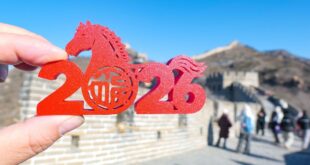I received a card through the post from a friend, along with a demand for a £5 fee, as Royal Mail claimed the barcoded stamp was counterfeit. The joke is she says she was sent this stamp by Royal Mail when she exchanged her old ones for the new barcoded kind under its Stamp Swap Out scheme.
SR, Sevenoaks, Kent
SS of Robertsbridge, East Sussex also received a letter with strings attached – in her case a £2.50 fee for “insufficient postage”. However, when the envelope was handed over, the stamp had been marked in pen as counterfeit. “The sender was an anxious elderly lady from church, and I find it impossible to think she’d buy a stamp from anywhere other than her local post office,” she writes.
Across the country, unknown numbers of users have been similarly charged after barcoded stamps became mandatory last July. Others, who sent old stamps to the swap out scheme, have been accused by Royal Mail of potential fraud, and informed that their stamps had been confiscated as counterfeits. Many claim they bought their stamps from a post office.
Either the British public is turning en masse to the black market, or post office workers are going rogue. Or could Royal Mail’s unwavering confidence in its fraud detection scanners be misplaced? In which case there are grim echoes of the ongoing Horizon scandal which saw hundreds of subpostmasters wrongly accused of fraud because of mistakes made by accounting software.
This month, Royal Mail announced it would investigate after postal workers declared stamps sold from their branches were being wrongly identified as fake. However, it stood by its detection processes despite admitting to the Telegraph that its scanners work on a “better safe than sorry” basis and “undoubtedly” make mistakes.
Royal Mail insists it has correctly identified fake stamps in the cases of SR and SS and says: “We have a robust, multistage process when assessing whether barcoded stamps are genuine. This includes a thorough examination using specialist equipment, then a follow-up inspection by a human before any stamp is marked as counterfeit or pre-used. We require any customer who believes they have been incorrectly surcharged, to send the envelope to us, with the barcoded stamp attached, along with the exact location of where the stamp was purchased.”
The problem with that is, it’s the recipient who is fined, not the sender who bought the stamps. Amazingly, the company refuses to comment on how many charges for counterfeit stamps have been issued in the past year. Moreover, there’s no way for senders, or postmasters, to check whether stamps they have bought or sold in good faith are genuine.
ML wanted to verify his stash after a friend was fined £5 for receiving a letter he’d sent with an allegedly fake stamp. “I’d received stamps via Stamp Swap Out and had also bought a batch on Amazon,” he says. “So I asked at my local post office whether my remaining stock could be tested. They told me only Royal Mail could do this. I am therefore deemed a criminal if I use fake stamps, but have no way of confirming whether they are legitimate.”
Royal Mail confirms that even its own customer-facing staff are unable to authenticate stamps, since it keeps its checking system secret to prevent fraudsters getting wind of it. However, it has published guidance on how to spot a fake, including uneven borders and a shiny surface. The advice is to buy stamps from post offices, reputable high street stores or Royal Mail’s websites and to avoid online bargains.
According to reports last week, Chinese suppliers are flooding the UK with cheap fakes which are advertised on internet platforms.
Meanwhile, post office workers fear they may once again pay the price for the failings of others. The National Federation of SubPostmasters questioned the reliability of Royal Mail’s barcodes and verification process since it has seen cases where just one stamp out of a book is declared counterfeit. “Any suggestion that postmasters, or their staff, are selling fake stamps to consumers is very serious,” says chief executive Calum Greenhow.
“The reputation of postmasters has taken a significant knock due to events around the Horizon scandal when so many were falsely accused of crimes. The NFSP has repeatedly highlighted, to both Post Office Ltd and Royal Mail, that it may be possible for fraudulent stamps to be purchased from reseller platforms but, very little has been done to prevent it.”
The Post Office says it receives all its stamps from secure Royal Mail printers, and that anyone who suspects they have been sold fakes must provide an itemised receipt and a photo of the stamp in order for it to investigate.
Email your.problems@observer.co.uk. Include an address and phone number. Submission and publication are subject to our terms and conditions
Source link


